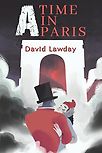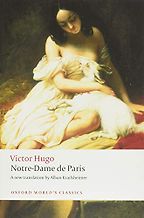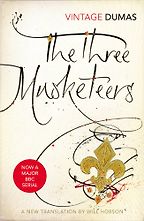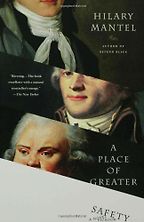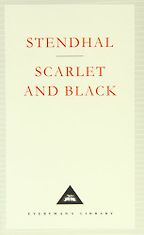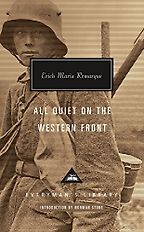You were a longtime Economist Paris correspondent and a Francophile of many years. But what drew you to writing historical fiction set in France? Your first book, Napoleon’s Master, was a nonfiction biography, but you have turned to fiction for your latest book, A Time in Paris.
Well, I think fiction brings over the suffering of people, it brings over the lives of people, what makes them do what they do, what prevents them from doing what they want to do. I think all of these things can work better in a novel. Sheer enjoyment apart—I love the novel form for its intimacy and lawlessness—I think I learn more about what has really gone on from fiction than from straight history.
Right, there is a great humanising element in fiction. Shall we step through your recommendations one by one? First of all, you’ve selected Notre-Dame de Paris, the 1831 classic by Victor Hugo. Our Anglophone readers might know it by another name, The Hunchback of Notre-Dame. It’s set in the 15th century.
Notre-Dame de Paris is the tragic love story of the grotesquely ugly hunchback Quasimodo—a bellringer at Notre-Dame—and the wild and beautiful gypsy Esmerelda. They both die in the end. But what’s wonderful about the book is that good still triumphs over evil, at least for the reader. It shows the purity of love.
It’s also a marvellous insight into late medieval Paris. Much of the book is about the streets of Paris, and the role of the Notre-Dame cathedral in the society round about. It has a particular resonance at the moment because Victor Hugo was very worried about the preservation of Notre-Dame; when he wrote the book, many parts of it were falling apart. So he wrote this book as a sort of plea for its preservation.
Quite recently there was a terrible fire.
I was there the night that it happened. It did make one weep. Of course, it is now being renovated in the original style, using all the original materials. There’s still immense interest in Notre-Dame, not only among Parisians.
So this novel played a major role in Notre Dame’s international celebrity.
Of course. It’s one of the most famous books in French literature. Victor Hugo was a god of French letters. No French author has ever been more popular. When he died the entire population of Paris turned out to watch his funeral cortege pass by on its way to the Panthéon, where French immortals, those who have brought most honour to France, are buried.
So yes, the novel had a huge impact on the international interest in Notre-Dame.
The second work of historical fiction set in France that you’ve chosen to recommend is another classic, The Three Musketeers by Alexandre Dumas, a swashbuckling adventure novel published in 1844 and set between 1625 and 1628. Why should we read it now?
Because it’s such a marvellous adventure story. It goes back to the days of chivalry in France, and I think this never loses its interest. This is a cape and sword book. A young provincial gentleman, d’Artagnan, coming to Paris with an ambition to become a musketeer—which was part of the royal guard. He fails to get in, and very early on he meets three musketeers and gets into a fight with them; he takes them on one by one and beats them all in a duel. They then strike up an inseparable bond and survive a series of death-defying scrapes, always on the side of justice against the king’s scheming courtiers. It’s such a good story, written with such dashing gusto that I don’t think people can ever get tired of it.
Great fun.
And this stirring motto of d’Artagnan and the three musketeers, ‘All for one and one for all,’ is also something that people like the idea of: the solidarity of a team, being part of a great gang. People have always loved that.
Yes. Although I suppose the theme of your next book might be the collapse of fraternal solidarity. This is Hilary Mantel’s A Place of Greater Safety, published in 1992. It’s a historical novel about the French Revolution. It’s a personal favourite of my own—but I appreciate it is a huge doorstopper of a book. Why should people take on the challenge?
It’s a wonderful bird’s eye view of the French Revolution, which has been the birthplace of so much in modern life. It zeroes in on the lives and inner feelings of the leading participants, in particular the lives of Maximilien Robespierre and George-Jacques Danton. I own to a strong interest in this period, because I wrote a nonfiction book, a historical biography entitled Danton: Giant of the French Revolution, which has come out since.
“I think I learn more about what has really gone on from fiction than from straight history”
So we have Robespierre, who is a bit of a cold fish, a methodical ideologue who is extremely difficult to sympathise with—at least in my view, although much of the French left still does sympathise with him and his role in the Revolution—and then you have Danton, a rowdy giant of a man with a big heart and a big voice. His voice carried him into the Revolution. When people listened to Danton they were listening to the voice of the Revolution.
He was not an ideologue at all. He was a practical man. As he explained it himself, how he got involved in the Revolution: “I saw a huge wave passing by, and I jumped on it.”
I’ve become very invested in Danton, as a direct result of this book. I guess that is a benefit of approaching real events through historical fiction; the reader tends to be more emotionally entangled.
Yes. Mantel’s book is also very good on the riots that took place during the Revolution, the food queues, the incredible hardships of the people, the ordeal faced by the population. Mantel has a special intuitive talent for seeking out what makes people do what they do.
We also see the inner lives, or certainly the private lives, of the women in that circle as well, and how they contribute to the movement.
Exactly. In particular, Danton’s first wife—who died in childbirth—and his second wife, who was a 16-year-old at the time. That’s one of the most interesting parts.
Shall we move on? Next you’ve selected Le Rouge et le Noir, or Scarlet and Black, a novel by Stendhal first published in France in 1830. The publisher of the Everyman Library, David Campbell, previously recommended this book to us as “a great picaresque, anti-hero tale.” Can you tell us more?
Well, firstly, the title of the book is a reference to the tradition in French high-born families, where the first son goes into the military—the red—and the second son going into the priesthood—the black. I think this is one of the most wicked books on social climbing ever written. It’s been translated into English several times.
It’s the story of a young man of humble birth from the provinces, Julien Sorel. His father is a carpenter. But he decides he’s much too sensitive to do that. Instead, he trains for the priesthood and becomes a seminarian. That gets him a job as a tutor to two people who are above his social rank in society. His ambition is to advance in society, and he does this by seducing the first wife of the local high dignitary in the small town where he was born. Then he moves on, goes to Paris, seduces a member of the aristocracy, a countess.
What I find so engaging is Julian’s mix of innocence and burning ambition to make his way. You don’t really blame him for doing what he does. As I say, it’s a wonderfully wicked tale. I mean, I should say, it all falls apart in the end because of the jealousies of the women Julian seduces. In the end he gets his comeuppance. Still, one can’t help sympathising with him as a character.
I love a bit of historical scandal, thank you. Now, a bit of a change in tone for your final book. This is All Quiet on the Western Front. It’s an autobiographical novel by a former German imperial soldier.
Well, this is an utterly persuasive anti-war novel. All these books, as we said, are historical novels in or about France. And I think this is really the most disturbing novel about World War One. I don’t think it’s been bested.
We see through the eyes of a young man from northern Germany. He’s a gung-ho patriotic young German volunteer. The story takes place in the trenches in northern France, in murderous close engagements with the French and British. Paul Bäumer, the narrator, experiences the horrors of it all first hand, and very soon begins seeing the immorality and the stupidity of what his commanders are telling him today.
Get the weekly Five Books newsletter
Of course, this book is a pacifist book, a great anti-war book. It was very popular when it came out. Erich Maria Remarque wrote the book at the end of the 1920s. When Hitler came to power, the book was banned, and was one of the books that was burned in that infamous book-burning episode in Berlin. Later on, Remarque was forced to leave Germany. He went to America and remained in the United States. It’s a story of a young man’s tragic disenchantment with war.
If I’m allowed a rival for Remarque from the French side there’s Fear (La Peur) by Gabriel Chevallier, published in 1930 in equally disenchanted vein. Chevallier’s influential autobiographical novel so chillingly brings out the absolute horror of First World War trench warfare that publication was suspended (with his accord) in 1939 for fear its anti-war messaging would block French conscription for the war against Hitler.
I would add that I thought of putting forward Robert Graves’ book Goodbye To All That, which is more wistful and sort of poignant, but also a wonderful book about World War One. Neither falls into the trap that eventually the anti-war movement fell into—one of strident demonstration and anti-war hysterics. And they do a better job, in my mind, of putting forward the anti-war case.
Your own novel, A Time in Paris, is also a French historical novel. It was set during the Siege of Paris in 1870. You’ve described it as “an event that continues to have a huge effect on world history today.” Could you tell us more?
Yes. It is a novel. Paris itself, the setting, is also character if you like. The Siege of Paris happened in 1870 during the Franco-Prussian war. The Prussians had defeated Imperial France on the battlefield in eastern France. The reason for war was that Prussia’s leader Bismarck wanted to unify Germany—that was his lifetime’s ambition—and France wanted to stop that. Both believed they had a good reason for going to war.
Suddenly, after a couple of months of pretty savage warring out in eastern France, the imperial army of Napoleon III collapsed—this was Napoleon Bonaparte’s nephew—and the entire army was taken prisoner and packed off into Germany. But the Prussians knew that you didn’t defeat France necessarily by defeating its army, you had to capture Paris.
So 400,000 Prussian men advanced on Paris, but decided not to make a direct attack. This is quite hard to visualise now, but Paris of 1870 was surrounded by high stone ramparts which were pretty well impregnable. The Prussian high command chose instead to lay siege to the capital—at that time, the greatest city in the world, with a population of more than two million. This was a huge undertaking and when Paris refused to surrender the invaders decided to starve it out.
Five Books interviews are expensive to produce. If you're enjoying this interview, please support us by donating a small amount.
My novel takes place inside Paris. The Prussians have cut all communications, and all supplies into the city. Pretty soon, hunger sets in, yet the population is very buoyant about it. My two heroes are two people trapped there, a young English gentleman of the Victorian age who has found himself trapped in Paris like everyone else and who falls in love with a radical young French woman who sides with the capital’s revolutionaries — an unlikely love match.
The city holds out for a sweltering month, then a second, then an Arctic third month when the temperature falls to -15ºC. In the end, the Prussians bring up the latest weaponry, giant Krupp-made cannons, and start bombarding Paris to hurry the capitulation along. Bismarck realises that other European powers don’t want to see Prussia getting this powerful—there might be intervention by the British, Austrians or Russians—and butts heads with the German military command over the slow-moving starvation plan.
The eventual capitulation of Paris had a very, very considerable impact. The unified Germany annexed France’s precious eastern provinces amongst other burdensome armistice conditions it imposed. Economic prosperity does return to France after some years, but it nurses a deep grievance about what has happened, the humiliation of it. It was never going to be content until it got its revenge on Germany for what happened in 1870, and this, to my mind, is a fundamental source of World War One, which itself leads to World War Two. Even Lenin used what happened in Paris—because revolutionaries did take over in Paris after the Prussians left—as a model for the Russian Revolution in 1917. Not as a model for what you should do, but for what you shouldn’t do—what you must avoid—in order to succeed in revolution.
How did you find this transition to historical fiction, and what do you think you gained from it?
I found it quite difficult. The nice thing about historical biographies, which I’ve written before, is that you get lots and lots of information and you make your own decision on putting it all in place to tell what happened. Here you are much more out on your own with licence to invent, which has its own problems.
Developing characters is difficult; I found perhaps I was letting the history intrude too much into the narrative, but I tried my best to marry the two. Have I succeeded? I hope so, and certainly it’s an interesting time in world history that is somehow almost forgotten considering the impact it has had.
Interview by Cal Flyn, Deputy Editor
September 11, 2023
Five Books aims to keep its book recommendations and interviews up to date. If you are the interviewee and would like to update your choice of books (or even just what you say about them) please email us at [email protected]

